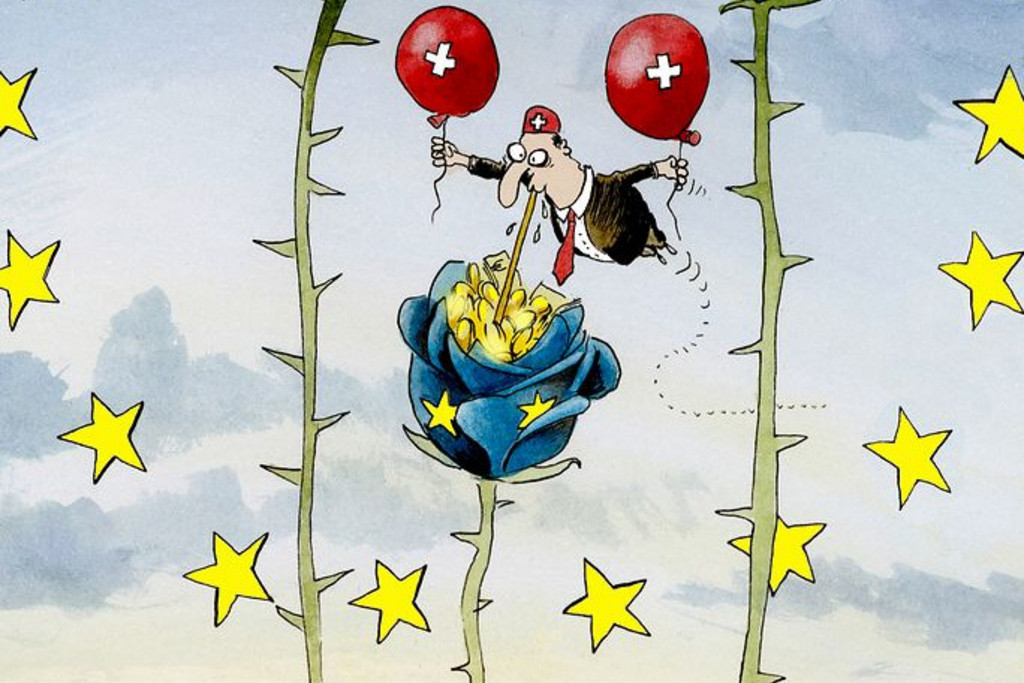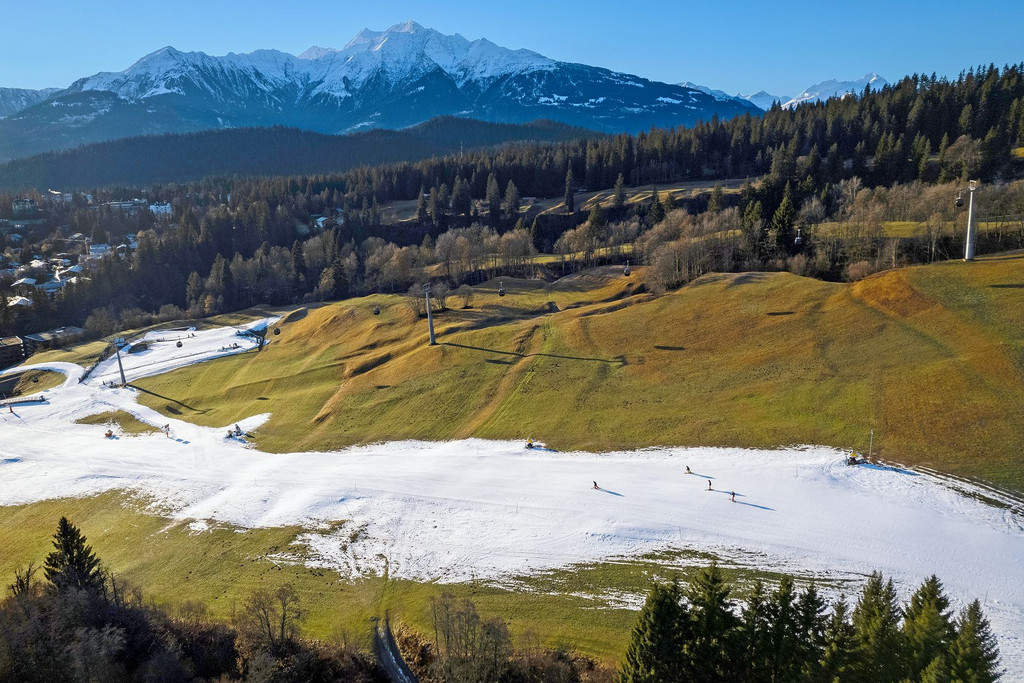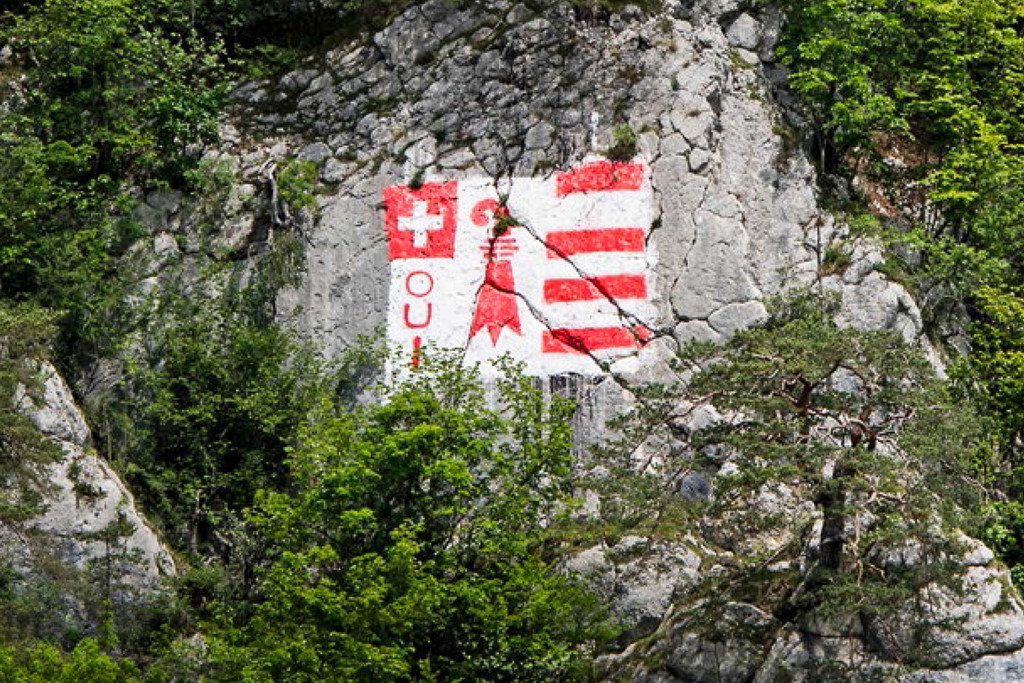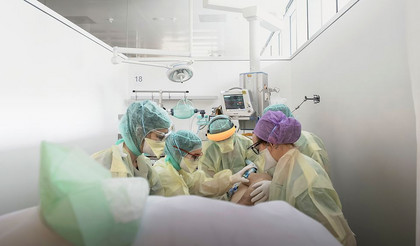Yet it would be wrong to wax lyrical. Switzerland was no better prepared for the pandemic than other industrial economies. The country had a hospital pandemic plan in place at federal level, but the cantons had failed to implement this plan for monetary reasons. Stocks of essential medical supplies were far from full – they were half-empty. Our self-discipline also became frayed at the edges. In May, patience began to wear thin. The Federal Council finally brought this restlessness to an end in June.
What are the issues that will preoccupy Switzerland in the months ahead?
COVID-19 has had a significant effect on intergenerational relations. The last few months have been a difficult time for the elderly in particular. Continue reading
Swiss unemployment will continue to rise. A recession looks likely. Continue reading
Children and young adults may experience the fallout from COVID-19 for the rest of their lives. Continue reading
The weeks that we spent in lockdown could turn out to have been a life-changing experience. They may provide the catalyst for social change, the likes of which we have never seen before. Or maybe they won’t. Continue reading
Can we go on holiday now? There will be far fewer international tourists visiting Switzerland this year. Continue reading
What happens to humour in precarious times like these? Satire in Switzerland suddenly toed the government line at the beginning of the COVID-19 pandemic. Continue reading
The fatherly doctor we all need – pandemic expert Daniel Koch became a cult figure during the crisis. Continue reading
*) As of 1 July 2020 according to the analysis of the Statistics Office of the Canton of Zurich: 31,827 cases, 1,965 deceased
Keeping your distance; washing your hands; wearing a mask; testing and tracing – the Federal Office of Public Health continually updates its guidance on preventing COVID-19 in Switzerland. Further information: ogy.de/corona-bag
Stranded abroad? The Federal Department of Foreign Affairs is helping to repatriate Swiss who are stranded abroad. Further information: ogy.de/corona-eda






![[Translate to English:]](/fileadmin/_processed_/3/7/csm_max-spring-3-cartoons-de_3c29839370.png)






Comments
Comments :
On pourra facilement déduire, qu'avec une proportionalité de tests, le chiffre réel de cas en Thailande pourra facilementètre 10 fois plus élevés, donc aux alentours de 30000 au moins, sinon beaucoup plus, vu l'enorme nombre de assymptomatiques.
Autre chose: dans les pays asiatiques existe depuis longtemps l'habitude d'utiliser des masques, dès que quelqu'un est malade, ne serait-ce qu'une simple constipation, afin de protéger les autres. Une habitude dont on est encore loin en occident, malheureusement.
Au lieu de rire, vous devriez peut-être mieux penser avant d'écrire....
1. Destroy Trump (good luck if law and order still exists)
2. Weaken and nullify America as global leader
3. Hasten the collapse of the USD as reserve currency
4. Identify those citizens who submit and those who do not
The worst is yet to come for many, but hopefully Switzerland will somehow remain a paradise of order. Invest in border control....
Wir veröffentlichen gerne Kommentare mit direktem Bezug zu den Beiträgen der aktuellen "Schweizer Revue". Punkto Corona-Pandemie hat sich die "Schweizer Revue" darauf fokussiert zu beschreiben, wie die Schweiz bisher mit der Pandemie umgegangen ist und welche Folgen im schweizerischen Alltag weiterhin dominieren.
Nicht Gegenstand unserer Berichterstattung sind Fragen zur Herkunft des Virus, zu medizinischen Aspekten, zur Gefährlichkeit oder Harmlosigkeit des Virus und zur Vielzahl der leidenschaftlich vertretenen Corona-Theorien. Wir veröffentlichen zu diesen Fragen keine Kommentare.
Danke für Ihr Verständnis.
-------------------------------------
Dear Readers,
We are happy to publish comments directly related to the content of the current "Swiss Review". Regarding the corona pandemic, "Swiss Review" has focused on describing how Switzerland has dealt with the pandemic so far and what consequences continue to dominate everyday life in Switzerland.
Our reporting does not deal with questions about the origin of the virus, medical aspects, the danger or harmlessness of the virus, or the multitude of passionately advocated corona theories. We do not publish any comments on these questions.
Thank you for your understanding.
mir ist es klar, dass viele Themen um den COVID-19 herum anzugehen wären und es durchaus den Rahmen Ihrer Zeitschrift sprengen kann, doch erlebe ich als Arzt Ihren Kommentar, respektive Ihre Anweisung als leichte Zensur. Mit freundlichen Grüssen
Leider sehe ich immer wieder, dass gewisse Leute, so versuchen diese Pandemie zu beschönigen, so als wäre der Virus "gar nicht so schlimm".... nur "eine kleine Erkältung" usw.
Mes collègues ont dus garder les capuchons prévus à usage unique...dans des petits gobelets avec le nom du patient pour les réutiliser à plusieurs reprises !
Non mais on marche sur la tête !
Et non la Suisse n’était pas plus prête que les autres pays alentours !
Mon père doit se retourner dans sa tombe!
Dans mon enfance la protection civile demandait à chaque famille d’avoir toujours un stock d’huile, de farine, de riz et je sais plus quoi, en cas de guerre...la Suisse n’a plus été en guerre depuis qq chose comme 1850 !
Mais comme les autres, les stocks coûtent chers, alors on a opté pour le flux tendu, acheter au meilleur prix ailleurs, idem pour les médicaments, et tout à coup on se retrouve non pas le bec mais au minimum la tête, voir le corps entier dans l’eau..et on se noie !
En tout cas cette pandémie donne matière à réflexion pour l’avenir ! Messieurs les gestionnaires !
Aber im Gegensatz zu vielen EU-Ländern war die Schweiz sehr schnell mit der Hilfe.
Erst hinterher hat die Regierung Fragen gestellt. Erst geholfen und danach die Sicherung, dies hat einen Seltenheitscharakter,
so einen Zug habe ich bisher in der Schweiz noch nie erlebt. Auch wenn ich Privat in der EU wohne aber als kleiner Unternehmer wurde ich seriös, einfach und schnell unterstützt. Da ich auch in der EU Unternehmer bin, dauerte die Hilfe in der EU beinahe 5 Wochen und in der Schweiz 3 Tage!
Dies sollte man sich einmal vor Augen halten!